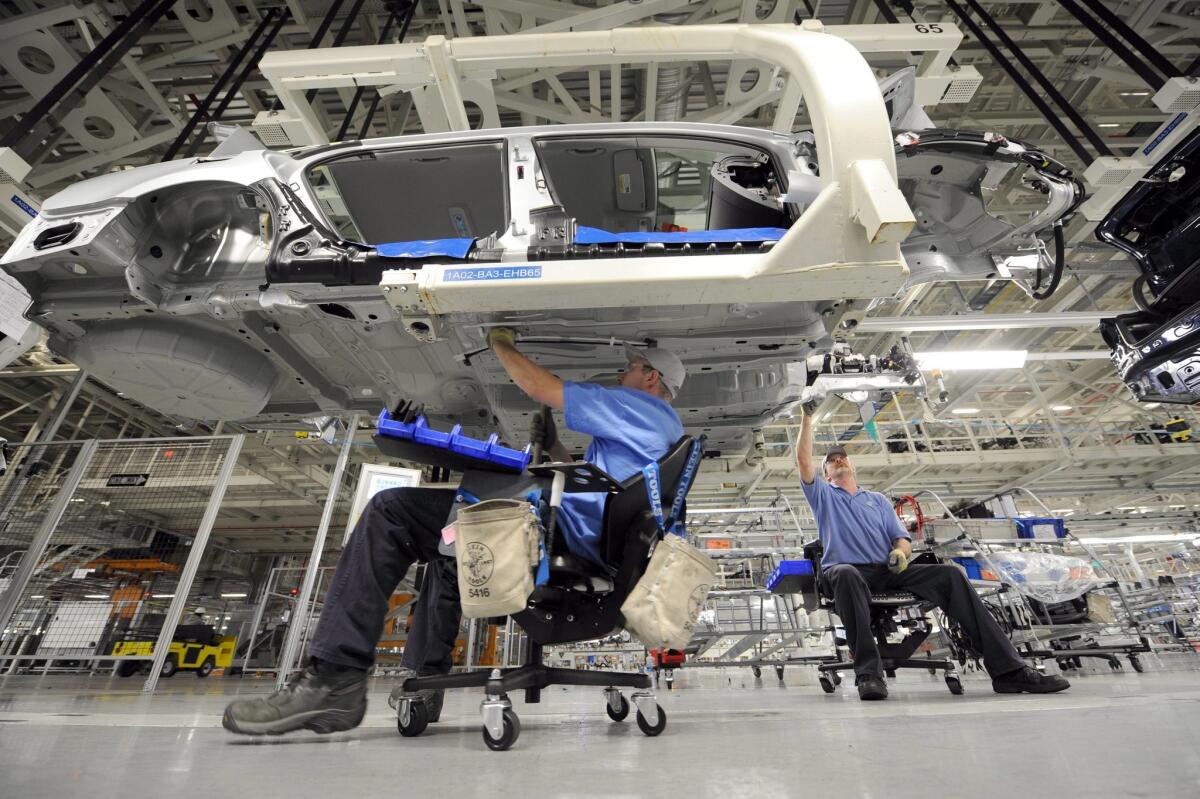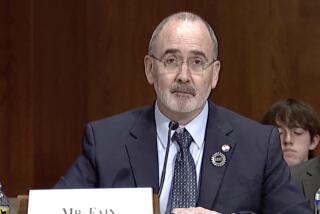The Volkswagen way to better labor-management relations

Works councils — elected bodies representing all workers in a plant, both blue and white collar — are acclaimed as one of the best, most innovative features of Germany’s labor relations system. They have been shown to enhance efficiency, adaptability and cooperation. By supporting the use of work sharing (agreeing to reduce everyone’s hours rather than laying some people off), for example, these councils helped Germany experience less unemployment during the Great Recession and a faster, more robust recovery since then.
For years, labor law, labor economics and labor-management researchers like us have urged experimentation with works councils in the United States. Volkswagen and the United Auto Workers are proposing to do just that at Volkswagen’s Tennessee plant. This could be a watershed in American labor relations, one that rejects the outmoded adversarial doctrines that have built up in U.S. labor law and practice. And it signals management and labor support for a new model of cooperation and partnership.
Unfortunately, the National Right to Work Legal Defense Foundation and others are opposing this effort by arguing that such cooperation would violate U.S. labor law’s 1935 ban on sham or “company” dominated unions.
A comparison of German and American labor law makes it clear they are dead wrong.
German law conceives of employees not as adversaries of management but as valued participants in the enterprise. German unions bargain about wages and hours. But, if workers choose to have a works council, it becomes a representative body in running the firm. Management must share extensive and even confidential business information with the council, and matters of critical concern on the shop floor or in the office must be discussed with the council and agreed to by its members. Most large enterprises, such as Volkswagen, have works councils.
American law is more agnostic but flexible. On the one hand, U.S. law makes no analogous provision for works councils. Instead, American employees can opt for union representation, and if they do, the employer must bargain about wages, hours and working conditions. Actual agreement is not required, however.
Many of the issues legally delegated for German works council consideration, such as whether to adopt a new technology or where to locate a new plant, are managerial prerogatives here, not subject to mandatory bargaining with a union.
On the other hand, U.S. law leaves the parties free to consult and bargain about these matters if they wish; i.e. to craft broader rights of participation geared to their circumstances. Thus, nothing in our law prohibits the creation of a works council, or bodies with similar participative and representational roles, by negotiation with an independent union, so long as the union has the support of the majority of the employees. In other words, what German law mandates there, the parties are free to tailor to their needs here.
Which brings us to Tennessee. Volkswagen is committed to applying the German model of robust employee participation in the United States. So is the UAW. Doing so would be a welcome experiment that could move employee participation and worker-management partnership to a new level, one that builds on what we know from experience and research has paid off handsomely for other U.S. workers and companies that have moved in this direction.
Companies such as Southwest Airlines, Kaiser Permanente and Ford have built partnerships with labor tailored to their specific needs. Southwest, the most highly unionized air carrier in the country, has also been the most profitable firm in the industry for three decades and is consistently near the top of Fortune’s list of the best places in America to work. Kaiser Permanente has worked with its unions to become the industry leader in quality, teamwork and use of electronic medical records, and was just ranked the No. 2 happiest place to work in the nation by CareerBliss.com. Ford’s chief executive credits its partnership with the UAW for helping the company avoid the need for a government bailout in 2008 and for its return to profitability.
Implementing a works council at Volkswagen’s Tennessee plant could usher in the next-generation labor-management partnership and demonstrate that the United States can learn from and adapt innovations of proven value from other nations. There are no legal obstacles to this advance in American productivity and industrial relations, and we hope American managers and unions will be open-minded.
Matthew Finkin is a professor of law at the University of Illinois and a member of the governing board of the Institute for Labor Law and Labor Relations in the European Union in Trier, Germany. Thomas A. Kochan is a professor of management and co-director of the Institute for Work and Employment Research at the MIT Sloan School of Management.
More to Read
A cure for the common opinion
Get thought-provoking perspectives with our weekly newsletter.
You may occasionally receive promotional content from the Los Angeles Times.






